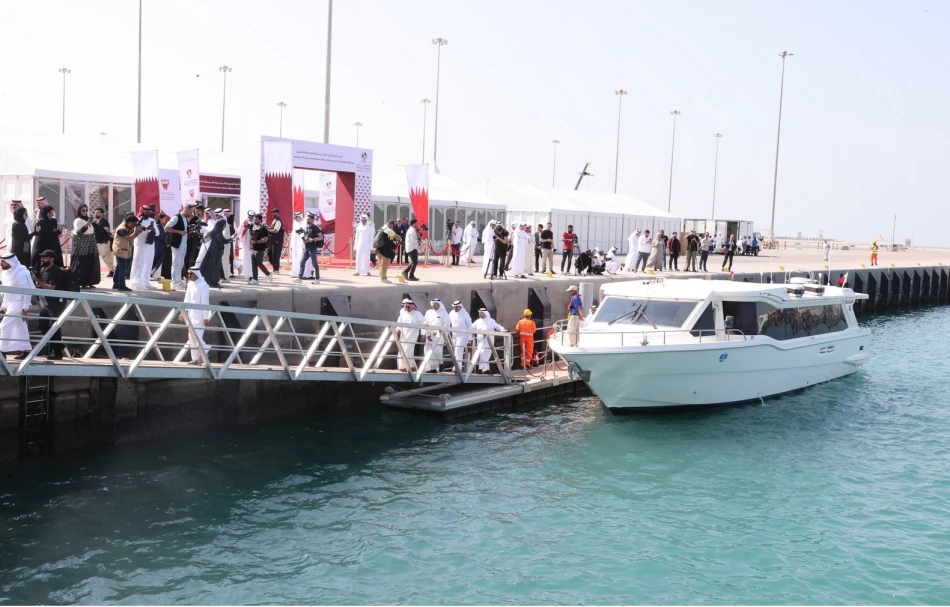
Qatar-Bahrain Maritime Link Launched, Connecting the Region's First Sea Route
Qatar and Bahrain launched their first regular passenger ferry service on Thursday, connecting Al Ruwais port in northern Qatar with Saada port in Bahrain. The 35-nautical-mile route marks the first maritime passenger link in the Gulf region and signals a new phase of transport cooperation between the two countries.
The ferry service covers about 65 kilometers in roughly 70 minutes, starting with two daily round trips. Plans call for expanding to three daily trips soon, depending on passenger demand.
Qatar's Transport Minister Sheikh Mohammed bin Abdullah bin Mohammed Al Thani called the project a strategic step that strengthens ties between the nations and supports broader Gulf Cooperation Council integration. He emphasized that both transport ministries worked together to ensure the highest safety and operational quality standards.
The service offers two boat types: standard vessels carrying 28 passengers and VIP boats accommodating 32 passengers with enhanced hospitality services and modern facilities. Passengers can book tickets through the MASAR app, which lets travelers choose their preferred departure times.
The initial phase runs from November 7-12 with two daily trips - one morning and one evening departure. From November 13-22, the service expands to three daily trips, with potential for further increases based on passenger volume.
Mohammed bin Abdullah Al Ibrahim Al Maadeed, Qatar's Transport Ministry undersecretary, noted that the ferry line goes beyond just moving people. It opens opportunities for diverse economic, tourism, and service activities that could benefit multiple sectors in both countries.
This maritime connection comes as Qatar and Bahrain have also revived their land bridge project, known as the "Friendship Bridge." The 40-kilometer bridge will span the Arabian Gulf, linking Qatar's northwestern coast with Bahrain island.
The bridge project, originally established in 2008 through a joint institution, carries an estimated cost of $4 billion based on designs by Vinci. But delays and major design modifications have pushed costs up by about $1 billion. The chosen route connects Askar in Bahrain with Ras Ashairij in Qatar, with construction expected to take 4-5 years once it begins.
Both the ferry service and bridge project fit into broader Gulf plans for integrated transportation networks, including a unified Gulf railway system. For businesses and investors, these connections could boost trade flows and tourism between the countries, while passengers gain faster, more convenient travel options across the Gulf waters.
Most Viewed News

 Sara Khaled
Sara Khaled






